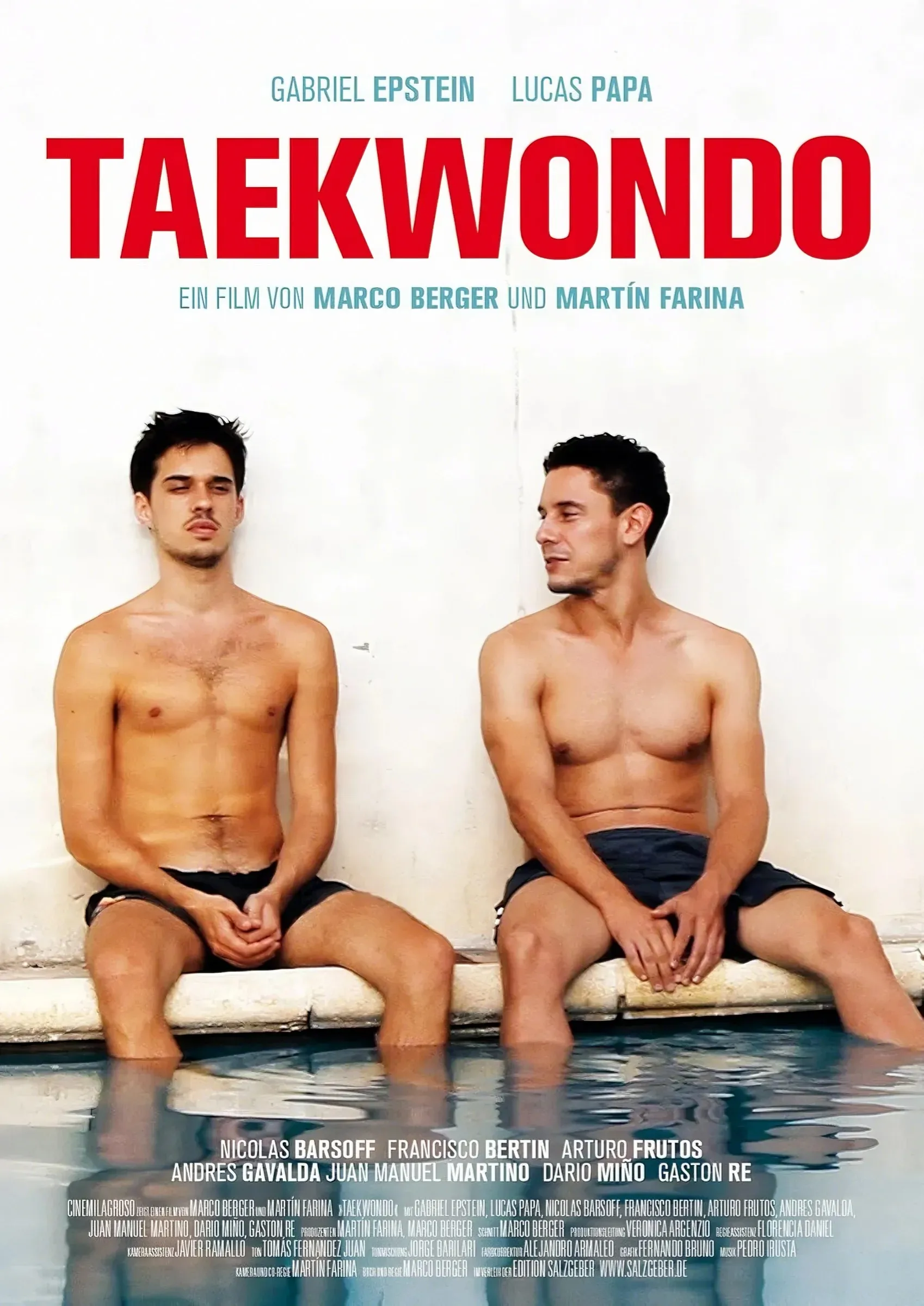"Taekwondo" (2016) is an Argentine drama directed by Marco Berger and Martín Farina, known for their delicate and intimate explorations of masculinity, friendship, and latent desire. The film is a slow-burning narrative that immerses viewers in an environment of male camaraderie, where the boundaries between platonic and romantic attraction blur, creating a tension that lingers throughout the story.
The film follows Germán, a quiet and somewhat reserved man, who is invited by his friend Fernando to join a group of men spending a summer retreat in a countryside house. Germán, who is secretly gay, finds himself in an environment dominated by heterosexual male energy—filled with playful teasing, casual nudity, and a strong sense of brotherhood.

At first, Germán keeps his attraction and feelings to himself, carefully navigating the hyper-masculine atmosphere without revealing too much. However, as the days pass, his connection with Fernando deepens. The two share stolen glances, intimate conversations, and subtle moments of physical closeness that suggest an underlying chemistry.
Unlike many LGBTQ+ films that rely on explicit conflict or dramatic coming-out moments, Taekwondo thrives on subtext. The tension between Germán and Fernando remains largely unspoken, allowing the audience to interpret the nuances of their relationship through body language, facial expressions, and prolonged silences.

"Taekwondo" received praise for its naturalistic performances, subtle storytelling, and authentic representation of male friendships. Critics noted how the film avoids clichés, presenting a unique take on male bonding that does not rely on dramatic tropes.
However, some viewers found the film’s lack of plot progression frustrating, as it does not provide clear resolutions or climactic moments. Instead, it asks the audience to sit with the tension, appreciating the nuances of each interaction rather than expecting a clear-cut love story.

For fans of slow cinema and films that explore queer themes through subtext, Taekwondo is a rewarding and thought-provoking experience. It offers a rare glimpse into the complexities of male intimacy, challenging traditional notions of masculinity without the need for explicit labels.
Taekwondo is not a film about grand gestures or dramatic confessions. It’s a film about the small moments—a glance held for a second too long, a lingering touch, a hesitation before speaking.
By leaving things unsaid, it mirrors real-life experiences of queer men who have found themselves in spaces where desire exists but cannot be fully acknowledged. The film’s strength lies in its subtlety, making it a powerful and quietly affecting meditation on masculinity, friendship, and longing.

-1744082395-q80.webp)


